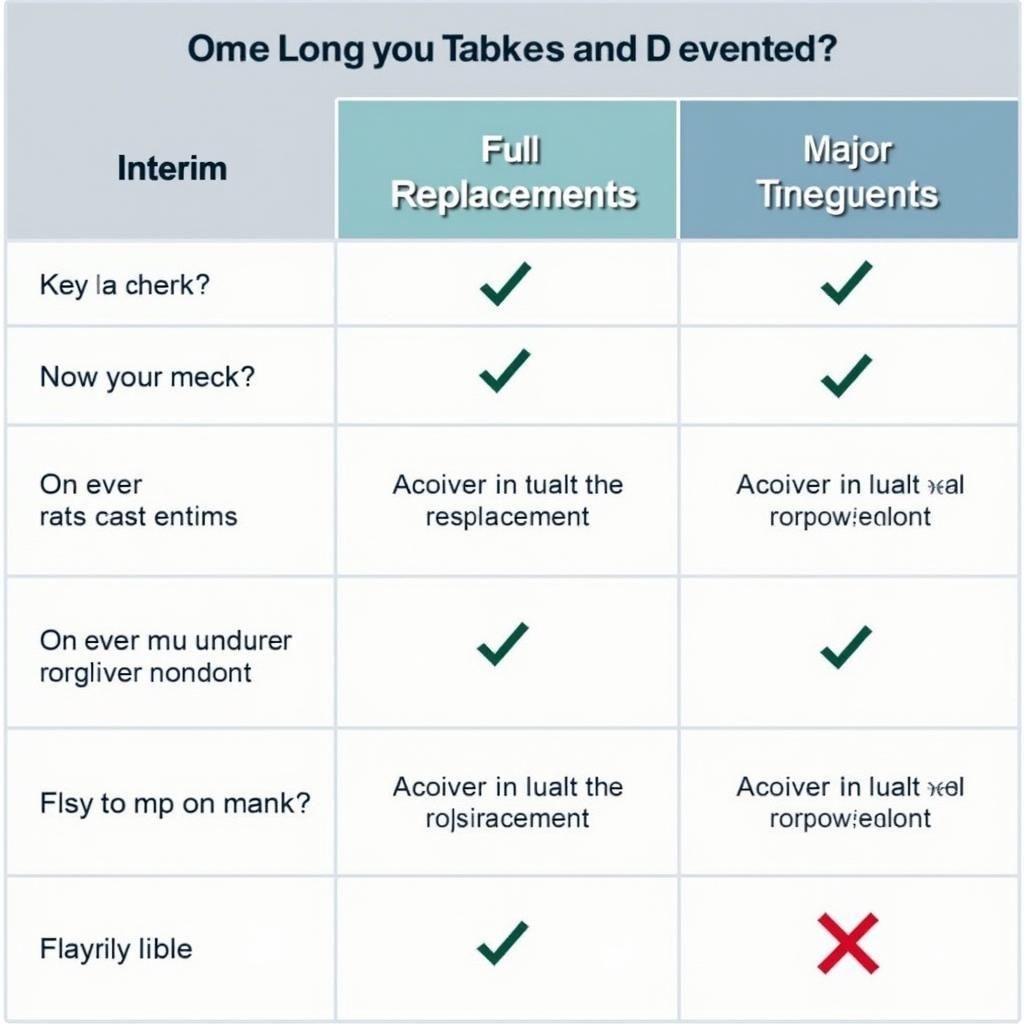Car servicing is essential for maintaining your vehicle’s performance, safety, and longevity. Understanding what’s included in a car service can save you money and ensure your car receives the proper care. This guide will delve into the intricacies of car servicing, covering everything from routine checks to more complex procedures.
Understanding the Different Types of Car Services
There are several types of car services, each designed to address specific maintenance needs at different intervals. These typically include an interim service, full service, and major service. Knowing the difference is crucial for choosing the right service for your vehicle.
Interim Service: A Quick Check-Up
An interim service is generally recommended every 6 months or 6,000 miles. This service focuses on essential checks and replacements to ensure your vehicle runs smoothly between full services. Typical checks include oil and filter changes, brake inspections, and fluid top-ups.
Full Service: A More Comprehensive Approach
A full service is recommended annually or every 12,000 miles and provides a more thorough examination of your vehicle. In addition to the checks included in an interim service, a full service also includes inspections of the steering, suspension, exhaust system, and more.
Major Service: The Most Extensive Service
A major service is typically recommended every 24,000 miles and covers almost every aspect of your vehicle’s mechanical components. This service often includes replacing components like spark plugs, fuel filters, and air filters, alongside a comprehensive inspection.
What to Expect During a Typical Car Service
Regardless of the type of service you choose, there are several standard checks and procedures you can expect. These are crucial for identifying potential issues early and preventing costly repairs down the road.
Essential Checks and Procedures
- Oil and Filter Change: Fresh oil is vital for engine health.
- Fluid Top-Ups: Maintaining correct fluid levels is crucial for various systems.
- Brake Inspection: Worn brakes compromise safety and require immediate attention.
- Tire Pressure and Condition Check: Proper tire inflation ensures optimal fuel efficiency and handling.
- Light and Electrical System Check: Malfunctioning lights can be a safety hazard.
Additional Checks in More Comprehensive Services
More extensive services will include additional checks like:
- Steering and Suspension Inspection: Ensures proper handling and stability.
- Exhaust System Check: Identifies potential leaks or damage.
- Cooling System Check: Prevents overheating and engine damage.
- Spark Plug Replacement (Major Service): Improves engine performance and fuel efficiency.
Why Regular Car Servicing is Important
Regular car servicing is not just about keeping your car running; it’s about ensuring your safety and saving money in the long run.
Benefits of Regular Servicing
- Enhanced Safety: Regular maintenance prevents potential failures that could lead to accidents.
- Improved Fuel Efficiency: A well-maintained engine burns fuel more efficiently.
- Extended Vehicle Lifespan: Regular servicing keeps your car running smoothly for longer.
- Higher Resale Value: A well-maintained vehicle commands a higher price when you sell it.
- Reduced Risk of Breakdowns: Preventative maintenance minimizes the chances of unexpected breakdowns.
“Regular car servicing is an investment, not an expense. It’s the best way to protect your vehicle and ensure its longevity.” – John Davis, Automotive Engineer
Conclusion
Understanding what includes in car servicing empowers you to make informed decisions about your vehicle’s maintenance. By following the recommended service intervals and ensuring all necessary checks are performed, you can keep your car running smoothly, safely, and efficiently for years to come. Regular car servicing is an investment that pays off in the long run, protecting both your vehicle and your wallet.
FAQ
-
How often should I service my car? This depends on your vehicle and driving habits, but generally, every 6 months for an interim service and annually for a full service.
-
What is the difference between a full and major service? A major service is more comprehensive and includes replacing components like spark plugs.
-
Can I service my car myself? While some basic maintenance can be done DIY, professional servicing is recommended for more complex procedures.
-
How much does a car service cost? The cost varies depending on the type of service and your vehicle.
-
Why is oil change important? Oil lubricates the engine and prevents wear and tear.
-
What happens if I skip a service? Skipping services can lead to premature wear and tear, reduced fuel efficiency, and potential breakdowns.
-
How do I choose a reputable car service center? Look for certified mechanics, positive reviews, and transparent pricing.
Situations:
- Unusual noises: If your car is making strange noises, a car service can diagnose and fix the problem.
- Warning lights: If any warning lights appear on your dashboard, a service is crucial to identify the issue.
- Decreased performance: If your car feels sluggish or less responsive, a service can help restore its performance.
- Before a long trip: Servicing your car before a long journey ensures it’s in optimal condition for the trip.
Suggested further readings:
- Understanding your car’s warranty
- Tips for choosing the right tires
- The importance of regular brake checks
For assistance, contact us via WhatsApp: +1(641)206-8880, or Email: [email protected]. We have a 24/7 customer support team.


